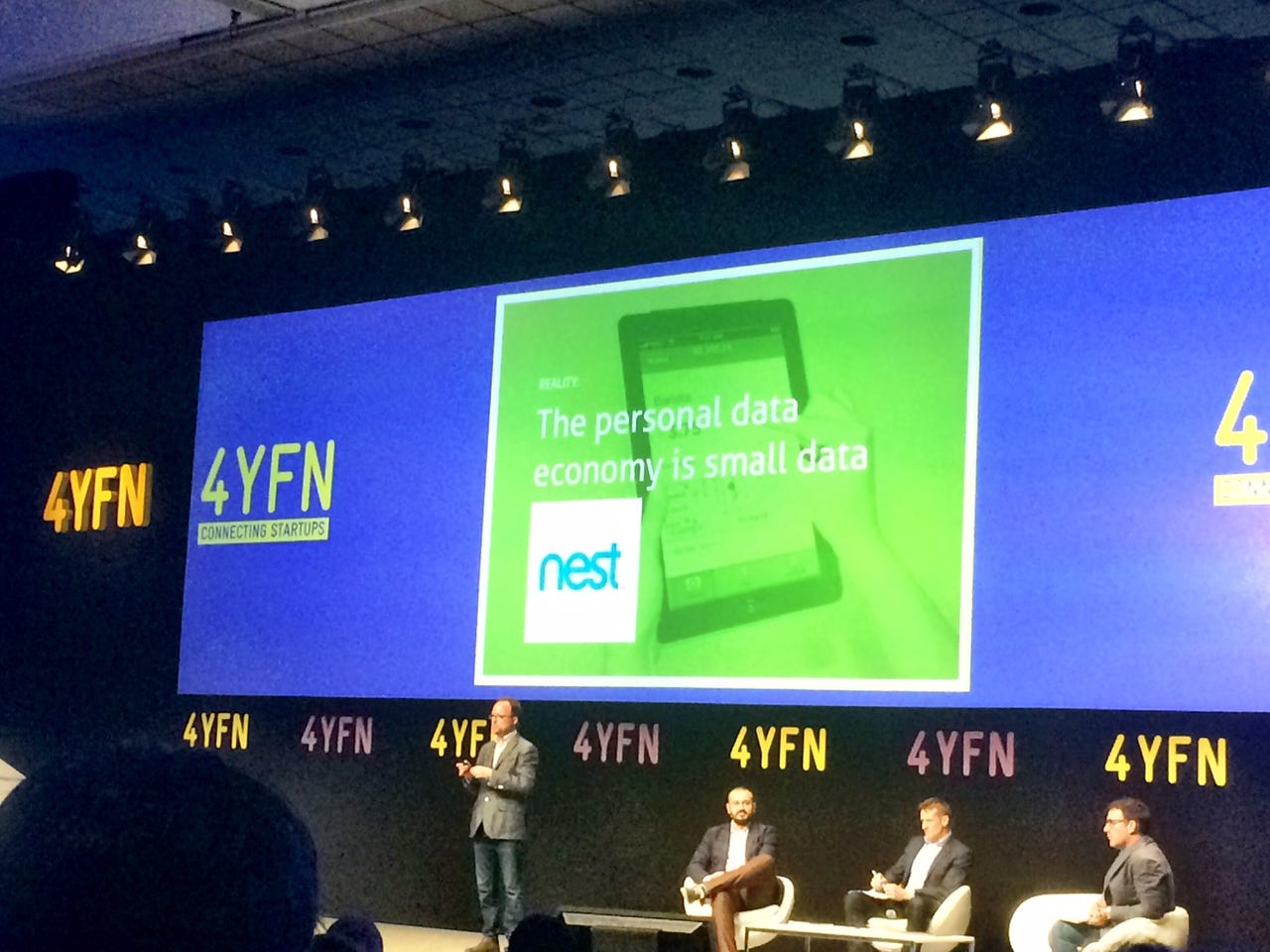Data privacy, trust, and new services: Why it might just be about small data


Privacy experts speak on a panel at last week's 4YFN event in Barcelona.
Many companies are stockpiling raw information, wrongly believing that the larger the amount of data they've collected, the greater its value.
But in businesses that depend on personal data, the greatest value will come not from mining, banking, or selling information, but from "enabling individuals to use, experience and exchange it", said Aldo de Jong, founder of consultancy Claro Partners. He was speaking at the 4YFN event, a conference running parallel to last week's Mobile World Congress in Barcelona.
People want to benefit from their data but "they need control, trust, and transparency", de Jong added. He also argued that the personal-data economy is about experience and based on small rather than big data.
As an example of how personal data can be used to benefit the individual, he cited the services of Simple, which claims to be an 'anti-bank' and seeks to distinguish itself from traditional banks by avoiding fees and offering customers data-rich analyses of their transactions. It's worth noting that in 2014, this online startup was bought by the traditional Spanish bank BBVA for $117m.
Antonio Álvarez, an EMEA business development manager at Amazon Web Services, said the real issue is about exploring customer usage data to understand what the public feels and wants.
Facebook chief privacy officer Stephen Deadman echoed this sentiment, underlining the need for bringing the value of data back to the user. He pointed to the Data-driven Society roundtable series in which Facebook has been participating, which is designed to "sustainably maximize the contribution data makes to the economy, to society and to individuals".
Katryna Dow, founder and CEO of Meeco, an Australian tech company aiming to help users manage and control their digital relationships, stressed that it's about finding a balance between the hunger for data and privacy.
That balance, according to Pablo Rodríguez, a Telefónica research and innovation director, comes down to establishing trust. Online services are built on trust, he said.
This same point was made by Raj Samani, CTO of EMEA at Intel Security, when speaking on a different panel at the 4YFN event. For Samani, the concept of privacy is changing and draws on three essential notions: consent, value, and transparency.
Given that people have many options for connecting with one another, "Trust is the most important commodity for our future," he said. Companies should find ways to achieve real customer trust, because future applications can't evolve with that sense of security.